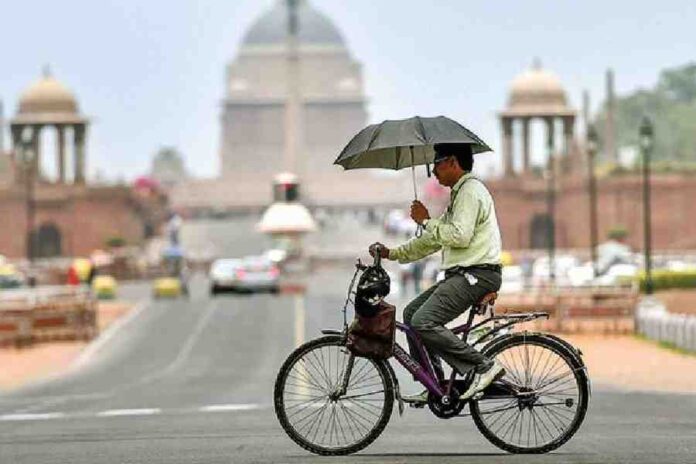New Delhi l
The capital city sizzled on Wednesday as Delhi recorded its hottest day of the year so far — a scorching 40.5 degrees Celsius, according to the India Meteorological Department (IMD). This is 6.3 degrees above the usual for this time of year, marking an unusually early spike in summer temperatures.
The Ridge observatory, which reported the temperature, noted that this was a sharp jump from Tuesday’s maximum of 37.1°C. Comparatively, March temperatures have consistently climbed over recent years — 37.8°C was recorded on March 29 in 2024, and 34.3°C on March 15 in 2023. The last time Delhi experienced such heat in March was in 2022, when temperatures hit 39.1°C.
Humidity on March 26 ranged between 19% and 52%, with the minimum temperature recorded at 17.7°C, highlighting the sharp gap between day and night temperatures.
IMD Issues Heatwave Warning for North India
As the mercury rises across North India, the IMD has issued a heatwave warning, predicting an increase in the number of extreme heat days this summer. While the region typically sees 5 to 6 heatwave days in a season, this year the number could jump to 10 to 12 days, according to IMD scientist Soma Sen Roy.
“We expect slightly above normal heatwave conditions this season, especially across West and Central India. This doesn’t mean every day will be a heatwave, but the frequency is expected to increase.”
Although it’s too early to tell if 2025 will surpass 2024 — which saw a record-breaking 554 heatwave days across India — the signs are already concerning.
Climate Change Signals and Health Concerns
The rising temperatures align with broader climate change trends, which are contributing to more frequent and intense heatwaves across the country. If these conditions persist, experts warn of serious implications for public health, water supply, and energy demand.
Authorities have advised citizens to:
- Stay hydrated
- Avoid outdoor activities during peak sun hours
- Wear lightweight and breathable clothing
- Watch for signs of heatstroke or exhaustion
With summer arriving earlier and hotter than usual, the heat is not just uncomfortable — it’s a growing reminder of the climate challenges ahead.








